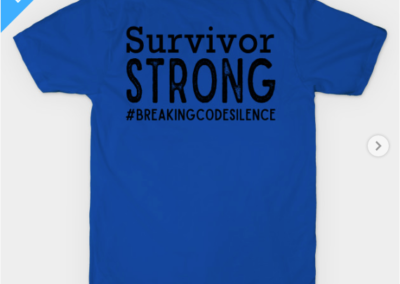In this post, we will examine the testimony of FBI agent Thomas Pearson. The FBI was already conducting an investigation into Midwest Academy for a separate matter prior to DHS calling them and the two agencies decided to collaborate. Agent Pearson conducted a 6 hour interview with Ben Trane and details some of their questions and the answers they received. The link to the full testimony will be posted under our highlights.
The FBI had been investigating Midwest Academy since the spring of 2015 for something completely different. They did not get involved with or contacted by DHS until December 2015. That means that the FBI was already investigating claims against Midwest Academy beyond the sexual abuse victim. One thing that Agent Pearson mentions in his testimony is that the FBI regularly collaborates with state agencies so when DHS Agent Lestina contacted him, this was not out of the ordinary at all. Some Trane supporters have claimed that is it.
Q. All right. I’d like to talk to you about Midwest Academy. Did you become involved in an investigation of Midwest Academy?
A. Yes.
Q. How did you become involved?
A. Well, our office had received some information in the spring of 2015 which resulted in us opening an investigation at Midwest Academy. I was assigned as the case agent for that investigation in the fall of 2015.
Q. All right. So another agent initially opened the investigation in the spring of 2015?
A. That’s right.
Q. And at some point you were called in to take over that; is that right?
A. That’s right.
Q. Now, prior to you taking over the investigation, just general broad sweep, had your office, people in your office been to the academy? Had some things been done?
A. Yes. Some investigation had been done. Some students, former students, had been interviewed by the prior case agent. There was some coordination with the Department of Human Services. They shared some information and did conduct some investigation.
Q. All right. Was there a point in time that you received a phone call from a different agency who was contacting you about Midwest Academy?
A. Yes. I received a call from Joe Lestina. He’s with the Division of Criminal Investigation for the State of Iowa. He’s a special agent for them. And he said that he had received an allegation regarding sexual abuse from a former student, and this was probably near the end of 2015, and so he informed me of that.
Q. Agent Lestina was aware that you had an investigation, so did the two of you start coordinating things?
A. We did.
Q. And he contacted you sometime in December of 2015?
A. I think it was December.
Q. All right. From that point on, from that phone call, did this then become basically a joint investigation between your agency and the DCI?
A. Yes. We coordinated pretty much everything we did from that point on.
Agent Pearson interviewed Ben Trane for 6 hours on the day they executed the warrant on Midwest Academy.
Q. Set the scene a little bit for us. When you arrived what were the things that you did?
A. When we executed the warrant?
Q. Yes.
A. We all pulled up in the parking lot and parked. Joe Lestina and I got a hold of the Defendant. We told him we were there with a search warrant. We asked him if he would sit down with us and submit to an interview, which he did. And so we spent about six hours talking to the Defendant that day.
During the interview, Ben Trane stated that he did not have a college degree. He was a few credits short of a computer science degree – a major completely unrelated to psychology or social work.
Q. Did the Defendant tell you what type of education he had?
A. Yes. He said he had gone to college. He didn’t graduate. He was a couple of credits short from graduating, but he attended a college in Utah for –I believe he said he was studying computer science.
Ben Trane stated that the school had a behavioral program that was therapeutic.
Q. Throughout this interview, how did the Defendant describe the school to you? What type of school was it?
A. Well, he said it was privately owned, basically a boarding school for teenagers under 18. They had an academic program there so students could pursue getting a high school diploma from them. They had a behavioral program that was therapeutic in its structure so that they could address behavioral issues with the students.
Ben stated that he was the owner of the academy.
Q. Did he tell you who owned the academy?
A. Yes. He said he was the owner.
At the time the school closed, there were 77 students. The tuition for the school was $5,000 a month. He mentioned that many middle class families would take a loan for the tuition and pay it like a car payment.
Q. Did he talk about how many students were there?
A. He said at the time we were there, there were 77 students there, and that in the past they had as many as 300. But when we were there, he said 77.
Q. Did the Defendant talk about how parents paid him for their children to attend the school?
A. He did. He said that there’s a monthly tuition. I think he said it was $5,000.00 a month, which was kind of their list price, although they had reduced rates for a lot of the parents.
Q. Did he say anything about it was like a car payment?
A. Oh, yeah. He said that a lot of middle class families can afford it because they can just get a loan if they need to, and paying off the loan for the school tuition was equivalent, basically, to a car payment.
Ben Trane told the FBI Agent that the reason that children became stuck at level 1 was to spite their parents.
Q. Did he say anything about why kids would get stuck on Level 1?
A. He said–well, we asked him, what do you do with students if they’re not progressing, and they’re just stuck at Level 1 and they’re not succeeding? And he said, the only reason that kids stay on Level 1 is if they have some sort of a conflict with their parents and they’re just doing it to spite their parents, then they just stay at the bottom level.
Q. He said they were doing it to spite their parents?
A. Basically, yes.
Ben Trane thought his school was so great that he felt that other schools should be modeled after his school and that he was going to send his own children through the behavioral program as soon as they were 15. We wonder how Layani would have felt with their children being subjected to weeks in OSS…
Q. Overall, did he paint a good picture of the students who attended the academy?
A. He did. He said that in comparing them to like a normal high school student, he said that other high school students don’t speak the way our students speak. They come there; they learn a lot of skills, like skills and communication skills. He said that when his kids get to be 15 years old, he’s sending them all through the behavioral program. And I think he even said that the nation should follow his school system because of the successes that it had.
Q. And throughout the interview, did the Defendant attempt to convince you what a good school this is and the good things that he was doing?
A. Well, he did. Again, he touted the communication skills that the students were learning. They compared favorably to high school students in general; that the nation should follow his school structure because of the success that they had.
Ben Trane initially said that anyone could make DHS reports as long as they went through Michael Davis. If you remember, he’s the clinical director who previously testified that he had no real power to change things inside Midwest Academy. Michael stated in his testimony there were many things at the school he didn’t feel comfortable with and he was threatened with being fired by Shasta Heidbreder if he made certain changes.
Q. Did you ask the Defendant or have a discussion about how reports to DHS are made within the school?
A. We were talking about a specific allegation that came up, and he did say that, well, anybody can report abuse allegations to DHS. Their policy was that it goes through Mike Davis, and Mike Davis does the reporting.
Q. So he said anybody can do it; however, the school policy is that it goes through Mike Davis?
A. Right
At first, Ben tried to claim that Michael Davis had reported the sexual abuse allegation first and that Cheyenne Jerred and Jane Riter had made separate calls. Later he said that he wasn’t sure about the timing. According to the responding DHS agent Elizabeth Webster’s testimony, there were only two calls made: The first by Cheyenne Jerred and the second came in over 40 minutes later by Jane Riter. It doesn’t appear that Michael Davis made a report.
Q. Did he say anything about who made the report regarding [sexual abuse victim]?
A. Well, we talked about that specifically. And he told us that Mike Davis called DHS and made that report. But he also said that Jane Riter had also called and made that report, and Cheyenne Jerred had called DHS as well. He said all three of them did.
Q. Did he say anything about the order of who called when?
A. Initially, he told us that Mike Davis called first. But then a little bit later on he said he wasn’t quite sure of the timing of the different calls.
Ben Trane admitted that he was the sexual abuse victim’s family rep and had control over when and how she could interact with her family.
Q. Did he admit that he was a family representative for [sexual abuse victim]?
A. Yes.
Q. With being her family representative, was it discussed that he could control phone calls home or to [sexual abuse victim]’s sister?
A. That’s one of the functions of the family rep, is to interact with the phone calls. And he said that he would initiate a phone call for [sexual abuse victim] to talk to her sister and then hand her the phone
Ben Trane knew that one of the details that investigators had been looking into was his shopping trips with girls to Victoria’s Secret. When Agent Pearson asked him about taking the children off the campus to go shopping, he gave them a list of stores and he didn’t include Victoria’s Secret in that list. They asked him again and he gave a longer list of stores – he again didn’t put Victoria’s Secret on that list. When Agent Pearson asked him where he would take the kids shopping if they needed underwear, he stated he would take them to Walmart or Dollar Tree. Ben admitted that he probably paid for 50% of the things for the children there.
Q. Did the Defendant say that he did take kids off campus sometimes?
A. He did. We asked him, where do you take students off campus, and initially he told us that we go to Walmart; we go to Aldi to buy various supplies or whatever is needed.
Q. Now, I’m going to ask you, be fore you asked these questions, did you have some knowledge through your investigation that the Defendant had been taking girls to Victoria’s Secret?
A. Yes. We had that information before we executed the warrant, and that was the purpose of asking him those questions about where you take students.
Q. All right. So you asked him, where do you take the kids, and he told you Walmart, Aldi’s?
A. He gave us those two stores. We asked again, where else do you go off campus? And he said, well, they do a lot of service projects. They take the students into the community to do various things. They go to the library or the hospital or the National Memorial . And then we asked him again, well, you know, what kind of stores do you take the kids to? And he told us Walmart, Kohl’s, Sam’s Club. He told us he took the kids out for sushi; he took kids out for ice cream; he took them to the malls in Burlington and Quincy.
Q. Did he ever mention during the interview that he took girls to Victoria’s Secret?
A. No. And then after that we went back and said, well, if they need underwear where do you take them for underwear? And he told us either Walmart or Dollar Tree, were the answers he gave us.
Q. Did he explain why he took the kids shopping?
A. He would take them shopping either if they just had a need for some item. It was out of necessity for some. For some it was a reward to get out of the school. For some he would take kids out for their birthday. For some kids that didn’t have parents either in the area–I think he gave an example that some parents are overseas and couldn’t come visit, that he would just take those kids out just so they had, I guess, a little attention.
Q. Did he say anything about buying things for the kids?
A. He said that he has probably bought things for 50 percent of the kids there, various items. And if you include meals, he has bought items for all the kids.
Ben states that the sexual abuse victim kept trying to get him alone with her because she wouldn’t open up with other people around. Once they were alone though, he claimed that she wouldn’t talk. He went on to say that she was standoffish, didn’t try to have a relationship with him, get very close to him, etc which was strange to him. It makes you wonder why Ben specifically requested to be her family rep if she wasn’t interested in being close to him at all and he didn’t really feel a connection with her.
Q. Did he admit to any sexual contact with [sexual abuse victim]?
A. No.
Q. You confronted him on that?
A. We asked him about that, and he said no.
Q. Did he tell you that it was [sexual abuse victim] who was the one who tried to get him alone?
A. He did. He said [sexual abuse victim] was always trying to get him alone. She said that she wasn’t comfortable talking with other kids around; that she needed it to be just the two of them. And he said he would make that available for her, but even when it was just the two of them she wouldn’t open up and say anything.
Q. So he did tell you that he accommodated what he says was her request to talk to him alone?
A. That’s right.
Q. But when he was alone with her, she wouldn’t talk?
A. That’s what he said, right.
Q. Did you ask him, you know: Was it [sexual abuse victim] that was trying to form a relationship with you?
A. We did discuss that and he said that [sexual abuse victim] didn’t pursue any sort of a relationship and that it was somewhat unique for her, because most of the girls there, they liked some interaction, they liked hugs, they liked to be around the Defendant, but she just didn’t try to pursue any sort of closeness or relationship like that.
Q. The impression you got from the Defendant is that [sexual abuse victim] was very standoffish compared to the other girls?
A. I think that’s fair, right.
Q. Did you ask the Defendant if [sexual abuse victim] ever been in his home?
A. We did ask that question. He said he didn’t recall her ever being there. He didn’t think she was over there.
Q. It wasn’t no. It was just that he didn’t recall?
A. That’s right.
He then went on to say he had never been alone with any students. This is odd because prior in the testimony, he claimed that the victim wanted to speak to him alone and once alone, she wouldn’t talk. Another witness also testified that Ben had been alone with the sexual abuse victim – you can read about it here.
Q. Did he admit to ever being alone with students?
A. He said he was never alone with students.
Ben Trane stated that he had fired Cheyenne Jerred for having a conversation with the victim and that was considered too close to therapy. Since Jerred is not a licensed therapist, Ben Trane seemed to think she wasn’t qualified to have conversations with the children. The strange thing is that neither is Ben Trane yet he often spent time among the children, took them shopping, conducted “body image” class, and acted as their family rep – all without any sort of license or college degree.
Q. Did you ask him about why Cheyenne Jerred was fired?
A. We discussed Cheyenne Jerred. She was fired because she had communicated with [sexual abuse victim] and that that was — since she was not a licensed therapist, and that was considered too close to, like, therapy, having those discussions with her, and she was prohibited from that, so she was fired because of it.
When asked about the “body image therapy,” Ben Trane originally tried to say it was something that the therapist did and he didn’t get involved in therapy. He later changed his story saying that he did have “some” involvement with it. As Michael Davis, the Midwest Academy clinical director, testified the previous day of the trial, he was not aware of this body image therapy and would not have done it. You can read Davis’ testimony here. One wonders why Ben Trane wouldn’t take accountability for this class he would run if he thought there was nothing to hide….
Q. What about body image therapy or the body image classes? Was that topic brought up to the Defendant?
A. We did ask about that.
Q. And again, prior to going into th is interview, had you received information that something like this was going on at the school that was put on by the Defendant?
A. Yes. Prior to the search, we had this information that –the allegation anyway, that the Defendant took girls into a–had them go into a room and look in a mirror and describe their body shapes and body types to him. And so we asked about body image therapy and body image classes.
Q. And what did he say?
A. The first time we asked him about body image therapy and if that i s addressed at the school, he said yes; that therapists do most of that. In the seminars they take care of a lot of the body image issues, and that there was a time when he had printed out some literature for some of the girls to look at regarding differe nt body types because there had been a female student who was mean to some of the other female students, the heavier students, and calling them fat and calling them names, and so he printed out some information to help focus themselves on body types.
Q. When he told you that he printed out this information, did he make it seem to you like it was just this one -time deal for this one particular situation?
A. Well, he said it was a result of one girl who was mean to some of the other girls, and it was in res ponse to that.
Q. All right. Did he ever admit to you at any time that he conducted these types of classes and had these types of discussions with the girls?
A. Well, eventually he did say that he was–did take part in some of the mirror classes, or mirror image. When we asked him about body image therapy, he said, no, the therapists do that and I don’t get involved in therapy. And then we asked: Well, we have information that these girls were sitting in front of a mirror with regard to their body type. And again, he said, that he thought the therapists might have done that. And we asked him specifically, did you do this or was it the therapists? And he said, I think the therapists might have done it. And then
he said, well, the girls that were involved with it when I did it aren’t even here anymore. So he never said yes, but he did acknowledge that he had some involvement with it.
In his interview with the FBI, Ben Trane lied about the OSS rooms. He stated that OSS wasn’t isolation, that they didn’t often close the doors, that they could interact with other students and no children would be kept there for longer than 7 days or else he would consider expulsion from the school. As Ben Trane’s own OSS logs that were collected by the authorities show several children stayed in OSS for weeks on end. The 12 year old victims were there for over 100+ days of their stay in Midwest Academy. As one victim’s mother testified here, her son stayed in OSS for 29 out of 30 days of the month. Former employee Stephen Jansing also testified here to the extended time some boys would be in OSS. Victim 2 testified to feeling like his mind and body were trapped in OSS here. Witness 1 testifies to not having anyone to talk to in OSS here. Witness 2 testifies that she hated OSS because she was alone with her thoughts here. Witness 3 testified here that they rarely were able to speak to kids in OSS when they were a rover. Ben’s own clinical director testified here that some children would spend weeks in OSS and the doors were often closed. Cheyenne Jerred testified here that she was concerned with the amount of time that kids spent in OSS and the doors being closed. In sum, Ben Trane blatantly lied to the FBI Agent as he was being interviewed.
Q. Did you ask him about the OSS rooms?
A. We talked about OSS, yes.
Q. And actually going back to March of 2015, the spring of 2015, the FBI started looking into some of those situations with the OSS rooms; correct?
A. That’s right.
Q. So you had prior knowledge going in to the interview about them?
A. I knew that they were there and that they were used, right.
Q. What did he have to say about the OSS rooms?
A. Well, he told us the OSS rooms are basically a timeout room. Students are put in there when necessary. The door is closed but only until the student calms down, and once the student is calm the door is opened. Students are–they’re not isolated in there. He said that DHS had been in and questioned him about OSS in the past multiple times and, you know, insinuated that they had been characterized as solitary confinement or isolation rooms or control rooms, all of which he said that’s not what they are; they’re just timeout rooms.
Q. Did he say anything about whether, you know, in response to some of those questions, did he make a comment about whether or not isolation was healthy?
A. Right. He said they’re not isolation rooms because isolation isn’t healthy. And it’s not an isolation room, basically because there are other students–there are two other students there with the student that’s in the room. So there is somebody to communicate with. There’s a lot of interaction for the student in the OSS room. There’s a staff member present. Therapists come and check on the students each day. So it’s not isolation in the way you might think that the person is just walled off from the rest of the world.
Q. And that was his explanation to you?
A. Right.
Q. Did you press him at all about structure and sitting twenty -four hours, or did you not go into that area?
A. We didn’t talk about sitting in certain structure. But we did talk about the twenty-four hour rule, because he said when they first opened up they had no real limits on OSS. So if a student got restrained a whole bunch, that’s just how it was. And at some point it changed to a twenty-four hour limit to be in OSS, but he acknowledged if a student goes in there for twenty-four hours and then has another violation of some other rule, the twenty – four hours is going to reset again, so that it’s really –there isn’t a twenty – four hour limit if a student keeps violating the rules.
Q. There’s no limit?
A. He said that–it basically got to the point where if a student was in the OSS room for more than seven days, they would look to start expelling the student out of the school
Q. Did he also say something that there was–that after May of 2015 that there was only a one -hour limit to be in OSS?
A. That’s right. He said DHS had come in more than once. So the first time they came up with the twenty -four hour rule, and then DHS came in in the spring of 2015 with some Iowa Code that limited it to a one-hour limit. And so they changed their policy to meet that guidance from DHS to limit it to an hour.
Q. That’s what he told you?
A. Right.
Q. Through your investigation of this case, did you find that not to be the case?
A. Well, we certainly learned that a lot of kids were in OSS reportedly for lengthy periods, weeks at a time.
Q. Even after May of 2015?
A. I think that’s right, yes.
Q. All right. And did he say anything about–you had brought up that he said something about if they’re in there for seven days, we look to expel them?
A. Right.
At the time the school was shut down, there wasn’t a licensing requirement with the state and Ben was in the process of opening a new residential treatment center that could have doubled his income. Since Ben claimed to not be making any profit on Midwest Academy, I wonder what double $0 was.
Q. Was it your understanding –when investigating Midwest Academy and gathering information, was it your understanding that at the time that Midwest Academy was open there were no State regulations on private boarding schools; is that right?
A. That’s right. Yeah, there was no licensing requirement to my knowledge because there were no guidelines for that specific setup.
Q. All right. So the Defendant was talking about he wanted to open a different type of facility that needed a license; is that right?
A. Well, he talked about getting licensing as a comprehensive residential treatment facility for this other location, and it’s my understanding he was trying to get that same designation for the Midwest Academy site too, but there were some physical issues with putting sprinkler systems in, that was very expensive, in Midwest Academy, and it was cheaper because the other location was smaller.
Q. But he mentioned that they could double their income if they could open this new facility?
A. Right.
Ben claimed to only take a small salary for his work at the school. He owned several properties in town including a gas station and condos that he rented to his staff.
Q. Did he say how much money he was paid for his work?
A. He said that there was a seven-year period where he didn’t take a salary at all. But then he started to take some salary. He was taking about, I think, $1,000.00 twice a month, bi -weekly.
Q. Through your investigation did you determine that the Defendant owned other properties in town?
A. He did. He owned –there was a gas station owned by them –by him, a condominium in the area, and some other land.
The FBI agent interviewed Ben about the sexual assaults that happened in the boy’s dorm. Ben didn’t feel that it was his problem to supervise the children that were getting sexually assaulted by other boys.
Q. Did you bring up the sexual assaults that occurred on the boys’ dorm floor to the Defendant?
A. We discussed that, yes.
Q. And that was the Pride group; is that right?
A. Right.
Q. What did he say about that?
A. He said that an allegation had been made that some of the boy students had engaged in some sort of sexual activity in the bathroom during the evenings. He didn’t really know to what extent it really occurred or in what magnitude or what extent. He didn’t think that whatever did happen was because of any shortcoming of the school; that the school had sufficient supervision, and that basically he was unfairly being accused of not having either cameras or staff in the bathrooms to oversee the kids because he didn’t think either of those options were available to him.
Q. In fact, he told you that supervision isn’t our problem?
A. Right. He said, yeah, supervision wasn’t a problem. And in fact, they did not make any changes to their policies or procedures after that incident.
Ben Trane explained that they only turned on certain cameras because he got tired of catching his employees stealing and didn’t want to deal with that. So apparently a staff member talking to a student and reporting a potential sexual assault is a fire-able offense but having an employee steal from children is not.
Q. Did the Defendant describe to you the camera system that was in the school?
A. He told us that there were cameras in the school that were recording. He said they used to record a lot of the cameras, and that he reduced it to just the camera in–there’s a main hallway camera; there’s a camera that is out in the parking lot; and, there are cameras in the OSS rooms. And he said that they used to record all the feeds, but then he kept watching them and seeing –he would catch his employees stealing and got tired of having to deal with all of his employees — like, knowing his employees are stealing, and so he stopped recording them because he was tired of having to deal with that.
Q. So the only cameras that were recording at the school then were the front hallway?
A. He said there was a front hallway camera, one that points out in the parking lot, then cameras for all the OS S rooms.
Q. So front hallway, parking lot, OSS?
A. Right.
Q. Did he let people know that he stopped recording in other areas? Do you know?
A. I don’t think so, because he made the comment that some of the people think these cameras are still recording , so apparently not.
While they were executing the initial search warrant, they found a room full of student records. Later the DHS and the FBI got a second search warrant to get the student records but when they arrived at Midwest Academy, they found that the student records were missing. Ben’s initial response was that they “were gone” and “in a secure place.” He seemed very aloof according to Agent Pearson’s account but he eventually did lead them to the records which were in Scott and Kathryn Piper’s house in a trailer in the garage.
Q. All right. After the first search was done, was the decision made to obtain a second search warrant?
A. Yes.
Q. And why is that?
A. Well, there was camera footage that needed to be collected, OSS cameras, and the other recorded camera footage, and records from the school.
Q. Did you participate in this second search that was going to be conducted?
A. No, I didn’t.
Q. In fact, that was when Ryan Herman was sent to the school; is that right?
A. Right. Ryan Herman and Stacy Weber from the Sheriff’s office, the two of them went out there to execute the second warrant.
Q. After the day that Ryan Herman went out, were you made aware that you needed a big truck?
A. Yes. They went out to get the recorded, electronic footage and then the other records. We learned that it’s very voluminous, that there were many, many boxes of records t here, so they weren’t prepared to take all that.
Q. So did you go out –well, you yourself go out a second time, but as law enforcement all together went out a third time to Midwest Academy?
A. Right. We knew that we needed to haul away a lot of paper re cords, and we needed a lot of people to do it. So we did a third search in February, I think it was February 11th, where we had a few dozen people with us and a big U -Haul truck to put all the records in.
Q. And that was February 11, 2016?
A. Right.
Q. All right. You went out that day?
A. Yes.
Q. Were you informed at some point that there was a room that had missing boxes?
A. Yes. I was told to expect a room, a storage room basically that had many, many boxes of records. We got there and the room was empty. The records had been moved from there.
Q. What did you do?
A. We asked the Defendant about it. We said, there used to be some records in here two weeks ago and now they’re gone. Where are they, and can we have them?
Q. Did he say that he m oved the records off site?
A. Yes. He said he moved the records off site to keep them secure.
Q. But he only moved some records; is that right?
A. Right. The room was empty, but there were records throughout the school and in his residence that had no t been moved.
Q. And was it, in fact, the student records that had been moved off campus?
A. Well, a lot of those records were student records. We did find student records in other locations too.
Q. Did you find out –at some point that day, did you fin d out where the records were?
A. Yes.
Q. Where did you track them down to?
A. Well, the Defendant initially said, you know, I moved them off site, they’re secure. He didn’t share the location of them initially. But as the day wore on, he said, you kno w what, I’ll take you over to them. And so he got in a vehicle, and we followed him over to a house –a residential house in town where they had been loaded up in a van and a closed trailer, and they were parked in the garage.
Q. So the documents were in a van and in a trailer, and all of that was inside a garage at a residence here in Keokuk?
A. Right.
Q. So you followed the Defendant to this residence?
A. Right.
Q. Whose home is that?
A. It’s Scott and Kathryn Piper’s house.
Q. What happened when y ou arrived at that house then?
A. We pulled up in the driveway. He said everything is in the garage. He had to get on the phone. No one came to the door. We didn’t meet anybody there. But eventually one of the garage doors opened up so we could access the garage. And he pulled the van out and connected the trailer up to it and drove it back to Midwest Academy, and we followed him back there.
Q. The Defendant did?
A. The Defendant did that, right.











